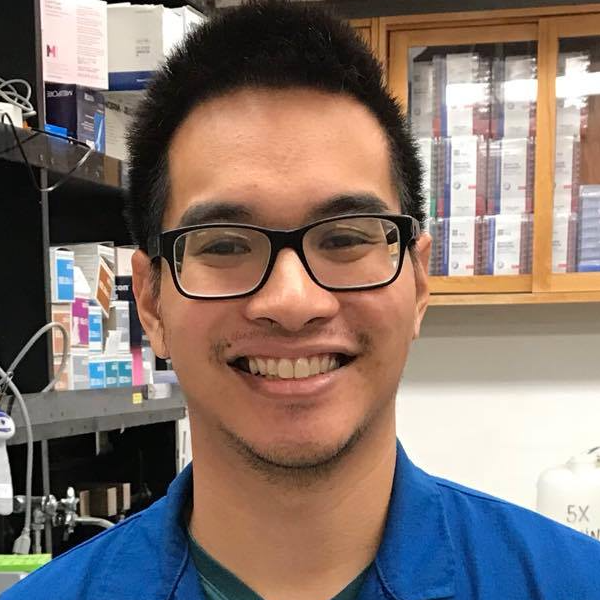With the increasingly competitive job market in academia for STEM PhDs, graduate students across the country are struggling to find employment commitments by the time they graduate. With the exception of computer science majors, the output of STEM PhD graduates far exceed the amount of jobs available. Furthermore, the predominant job opportunity for graduates in life sciences, physics, or chemistry is a post-doc position with a minimal $40K salary. It’s no wonder that so many STEM PhDs are leveraging their credentials toward alternative careers such as consulting.
The fast-growing consulting industry has an estimated global market value of US$250 billion. The consulting industry is segmented into various fields such as pharma, healthcare, or retail and hires at various levels of education including bachelor, MD, and PhD. To better understand the nature of the consulting industry and the mindset of STEM PhDs entering consulting, I spoke with Jesmine Cheung, an associate at DeciBio, and summarized 6 takeaway points at the end of the article. DeciBio is a boutique life science consulting company based in Santa Monica, California. Jesmine is a UCLA Biochemistry PhD graduate who studied mechanisms of mitochondrial protein import in the Carla Koehler laboratory.

When in grad school did you begin to pursue this field? What caused you to change your career path?
I think it was about my second to third year that I really decided I did not want to do bench work for the rest of my life. The end goal would have been to graduate with a PhD and then do a post doc somewhere, or maybe work in industry. Ultimately, I felt research in either an academic or industry setting really isn’t for me. So I asked myself, what else could my PhD be used for? This is when I looked more into alternative careers and consulting was one of them.
What about consulting with a STEM PhD appeals to you?
At first I had no idea what consulting really was. My impression was that it was primarily for people with prior business expertise. But after looking deeper into it, I found that there are a lot of niche-based consulting companies such as in pharma or life sciences. Given my several years in academic research, I thought I would be more suited for those types of consulting jobs.
Do you think it offers a lot of leverage having a STEM PhD?
Absolutely, especially in niche related consulting firms that are science based. But beyond that, earning a PhD really allows you to harness your critical thinking, analytical, and problem-solving skills, which are essential in consulting. Though I wouldn’t say it’s required to have a PhD, because there are a lot of business majors that get into consulting early on. But having a PhD can really help.
Many see consulting as a stepping stone into business-oriented job opportunities. Do you feel consulting is sustainable as a long-term career? What other careers do you think it prepares you for?
Well it really depends on the company. At larger firms like Bain, McKinsey, or LEK, I don't believe the lifestyle is really so sustainable. Consultants tend to work long hours, with an average of 60-70 hours per week, and the turnover for people is around 3 to 4 years. But smaller firms like mine seem to have much more reasonable hours. In terms of careers, a lot of consultants often end up working for one of their clients, which isn’t so surprising. Usually after gaining experience as a consultant you can get a foothold in various markets or research fields. Also, you end up growing your own network considerably because you’re constantly talking to and interviewing people. So consulting can certainly prepare you for a career in managing or marketing as well as lead to those types of opportunities.
What traits—personality or otherwise—do you feel are most suited for a career in consulting?
Having people skills is particularly important because you will be interacting with people all the time. This includes clients, colleagues, and experts in the field to which you are asking questions, emailing, or presenting throughout the day. Communication and teamwork skills are also highly desired because you are typically working on a case together, collecting data, analyzing and finding the best ways to present your findings to clients. This also means you need exceptional managing and analytical skills to apply the data and obtain meaningful outcomes.
I think we may have covered a little of this, but how do you feel having a STEM PhD helps you in this industry, if at all?
Analytical or critical thinking abilities are highly desired and obtaining a PhD, particularly in the science fields, helps to develop those skills. As a PhD student we are faced with challenges every day when things don’t work, or data isn’t reproducible. Then we must step back and find solutions to those problems. At some point it becomes natural to us and those abilities are essential in consulting. Also, presentation skills are important, and we get a lot of experience as PhD students from being TAs or presenting our work at seminars or conferences.
For many fields we don’t always have prior experience or knowledge yet. It’s usually through diligent research, interviews, and data collection that we become well-versed in the field and are able to provide useful advice
Now that you are in this industry, is there anything about it that you didn’t expect or that surprised you? Positive or negative?
No, not really actually. I had a pretty good idea about what it was, especially from doing interviewing and practicing case studies. You have to have a fair bit of understanding of what consulting is before you can be hired.
Is there anything you miss about research or wet lab work?
No, but I’m sure some people would. For me, research is often so focused on a very small area for long periods of time. After a while you start losing interest or motivation to find the answers. For consulting, a project lasts only weeks or months, and you can have a more definitive answer while quickly moving on to something else. I find that much more satisfying.
What does a normal work day look like for you? How has this changed from your days in research in academia?
No pipetting! It’s completely different from research. No experiments or lab work. Rather it’s a very office type of work. You go from meeting to meeting, contacting different experts in the field and emailing experts to gain insight. Ultimately, the output is basically a PowerPoint, which we present to the clients.
How did you prepare yourself for a career in consulting? Specifically, how did you prepare for the interviews?
The interviews are generally split in two parts. The first part is behavioral like most jobs to see if you’re a good match, personality or otherwise. The other half is the case interview, where you are presented with a mini or simplified case you would typically see at the firm, to see how you can think through a problem. For that you will have to practice a lot. But there are plenty of case books out there that you can read. And it’s always best to practice with somebody or in a group. There are usually consulting clubs on campus that meet and do cases that help with those things.
What about other ways to prepare your resume for a consulting job?
Well, any other activity aside from research or science, if you’re getting your STEM PhD to help your resume. Things like participating in case competitions or venture capital activities. Or if you’re able, try to find an internship somewhere in consulting or the biotech industry.
What advice do you have for those with STEM PhD’s and want to pursue a career in consulting?
Think hard if this is something you really want to do toward the beginning of your PhD and make a decision then. It’s very hard to start building your resume and getting ready for a consulting career when you are about to graduate.
Takeaways:
- STEM PhDs have an advantage when applying to consulting companies specializing in a market related to their degree.
- Consulting projects are much shorter than research projects, lasting on average weeks to months, as opposed to years.
- Boutique companies offer better work-life balance.
- Unlike research at the bench, a main component of the job requires interactions with stakeholders.
- Taking part in case competitions and practicing case studies are key to a successful interview.
- If you think consulting is for you, build your experience and resume with relevant activities before you graduate.

